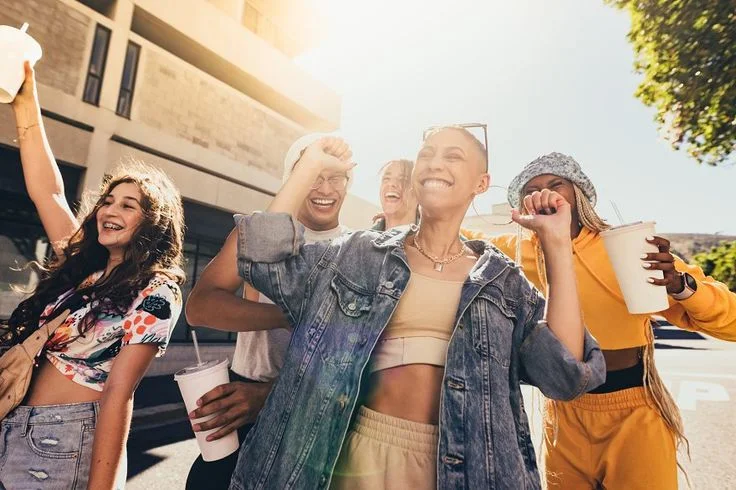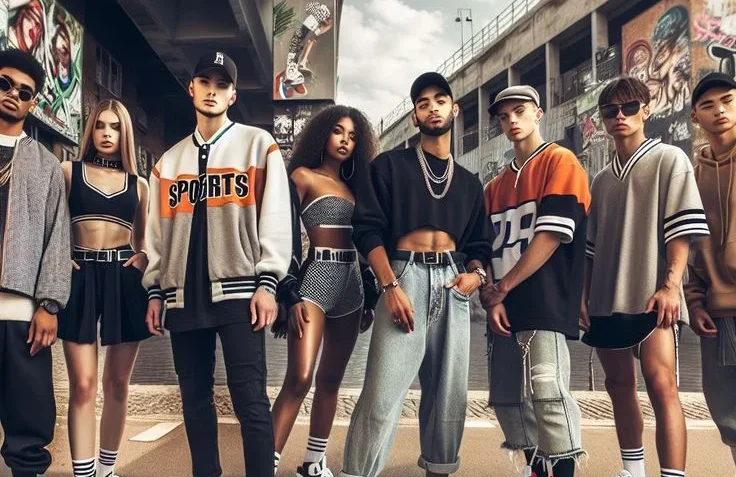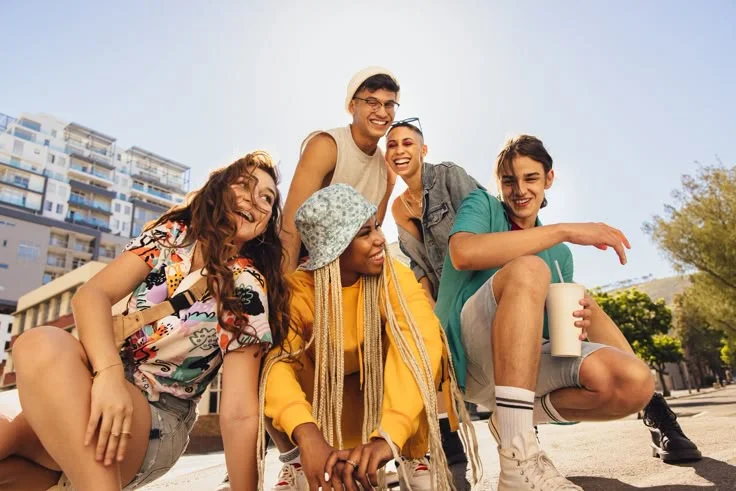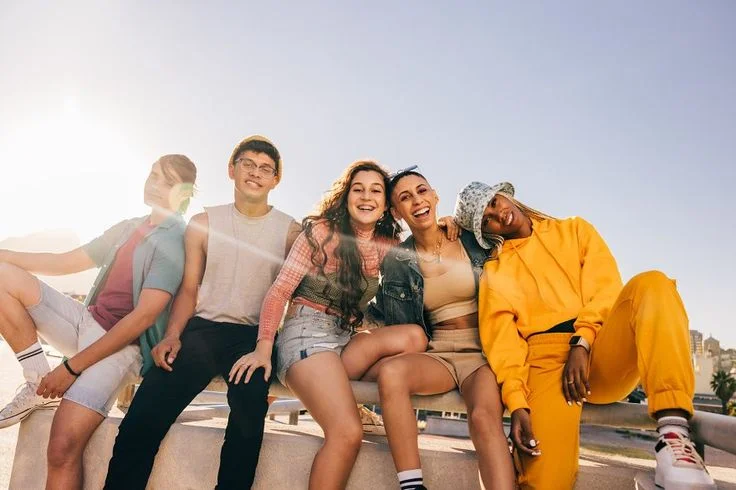Gen Z fashion brands 2025 are shaping the way the industry evolves. This generation is not only trend-savvy but also conscious about sustainability, inclusivity, and digital culture. Unlike previous generations, Gen Z doesn’t just buy clothes for style they buy into values, identity, and brand authenticity.
Their fashion choices highlight individuality while embracing social and environmental responsibility. So, what brands are Gen Z wearing in 2025? Let’s dive into the labels and trends that dominate their wardrobes this year.
The Evolution of Gen Z Style in 2025

Fashion for Gen Z in 2025 is a reflection of cultural and social shifts. They prefer clothes that are expressive, gender-fluid, and versatile, representing both freedom and identity.
Transitioning away from fast fashion, many Gen Z shoppers now blend affordable streetwear with higher-end, ethical brands. This balance allows them to look stylish while staying true to their beliefs, proving that individuality doesn’t have to come at the cost of responsibility.
In addition, Gen Z is influenced by TikTok trends, influencer culture, and viral micro-brands that emerge overnight. Unlike older generations, their style can change quickly, yet they remain committed to brands that align with their values.
Streetwear’s Continued Dominance
Streetwear remains at the core of Gen Z fashion brands 2025. From oversized hoodies to statement sneakers, it still defines everyday wear. This aesthetic allows them to blend comfort with cultural relevance.
Brands Leading the Streetwear Scene
-
Nike – Still a global giant, but now with added focus on sustainability and recycled materials to appeal to eco-conscious Gen Z.
-
Adidas Originals – Collaborations with influencers, music icons, and digital-first marketing keep Adidas highly relevant.
-
Fear of God Essentials – Known for minimalism and neutral tones, it’s a staple among Gen Z who value comfort with sophistication.
-
Supreme – Limited drops and resale hype continue to drive exclusivity and desirability among young shoppers.
Moreover, social media plays a huge role in streetwear’s dominance. Platforms like TikTok make it easy for these brands to go viral with just a single outfit trend or influencer endorsement.
Sustainable and Ethical Brands on the Rise
Gen Z has made sustainability a non-negotiable part of fashion. They demand transparency, ethical sourcing, and eco-friendly fabrics. Unlike fast fashion, they prefer brands that provide real accountability.
Key Sustainable Labels in 2025
-
Pangaia – Innovating with eco-materials like seaweed fiber and recycled cotton, proving sustainability can also be futuristic.
-
Reformation – Blending chic aesthetics with eco-friendly practices, appealing to those who want both ethics and elegance.
-
Patagonia – Beyond clothing, Patagonia’s activism against climate change makes it a respected favorite.
-
Allbirds – Known for ultra-comfortable shoes and carbon-label transparency, they are trusted for their planet-first approach.
As a result, choosing these brands allows Gen Z to express not just fashion sense but also their environmental identity.
The Luxury Brands Gen Z is Redefining

Interestingly, Gen Z hasn’t abandoned luxury. Instead, they’re reshaping it. They don’t buy luxury for exclusivity alone but for creativity, boldness, and alignment with modern culture.
Luxury Favorites of Gen Z in 2025
-
Jacquemus – Playful campaigns and vibrant designs give it mass appeal on TikTok and Instagram.
-
Balenciaga – Despite controversies, it remains popular for irony-driven fashion and streetwear-inspired couture.
-
Prada – Revitalized with futuristic designs and inclusive campaigns, it’s a bridge between heritage and innovation.
-
Miu Miu – Viral micro-trends on TikTok (like mini skirts) have made Miu Miu a hot choice among Gen Z trendsetters.
Thus, Gen Z doesn’t view luxury as untouchable—it’s something they remix with streetwear, thrift finds, and even sustainable brands to create bold hybrid looks.
Digital-First and Virtual Fashion
No discussion of Gen Z fashion brands 2025 is complete without mentioning the metaverse. Digital fashion has become a real industry, where Gen Z invests in skins, NFTs, and virtual clothing to show off identity online.
Brands like DressX and The Fabricant are pioneering in this field. They create collections that exist only online but carry cultural and social currency. For Gen Z, flexing style in a video game or social app is as important as wearing clothes in real life.
Moreover, AR (augmented reality) try-ons have become mainstream, with Gen Z seamlessly blending digital and physical shopping experiences.
Gender-Neutral and Inclusive Brands
Gen Z strongly rejects traditional gender roles, and their fashion choices reflect inclusivity. They support brands that celebrate fluidity and create pieces for all identities.
Inclusive Labels in 2025
-
Collusion – Known for affordable, bold, and gender-neutral designs available via ASOS.
-
Telfar – The “Bushwick Birkin” bag continues to be a symbol of affordable inclusivity.
-
Thom Browne – Famed for gender-fluid tailoring that challenges the suit-dress binary.
-
Phluid Project – One of the few brands built entirely around non-binary, inclusive fashion.
This growing inclusivity proves that for Gen Z, fashion is more than clothing—it’s a political and cultural statement.
Small Independent Brands Gaining Traction
Another exciting trend in 2025 is Gen Z’s preference for smaller, independent labels. They enjoy supporting underdog designers who offer originality rather than mass production.
Platforms like TikTok and Instagram amplify these indie labels. For instance, House of Sunny with its colorful knitwear and Heaven by Marc Jacobs with its edgy Y2K vibes are both cult favorites.
In addition, shopping through Depop and second-hand apps allows Gen Z to discover unique pieces while reducing waste, which fits perfectly with their sustainability-driven ethos.
Key Fashion Trends in 2025 Driven by Gen Z

-
Y2K Revival – Nostalgic aesthetics, low-rise jeans, and baby tees remain highly influential.
-
Athleisure 2.0 – Sportswear evolves into high-tech comfort wear for daily life.
-
Eco-Chic Minimalism – Capsule wardrobes and slow fashion gain importance.
-
Statement Accessories – Bold jewelry, oversized tote bags, and tech-enabled wearables.
-
Tech-Integrated Fashion – Clothing embedded with health and performance tracking technology.
These trends highlight how Gen Z fashion brands 2025 are both nostalgic and futuristic—reviving early 2000s style while embracing digital innovation.
FAQs
What brands are Gen Z wearing the most in 2025?
Gen Z loves mixing streetwear giants like Nike and Adidas, sustainable labels like Pangaia, and playful luxury houses such as Jacquemus and Balenciaga.
Why is sustainability important to Gen Z fashion?
They are deeply aware of climate change and want brands that align with their eco-conscious lifestyle. Sustainability is seen as stylish, responsible, and non-negotiable.
Do Gen Z shop more online or in-store in 2025?
Online shopping dominates, driven by TikTok fashion hauls and Instagram drops. However, experiential pop-ups and thrift markets are equally popular.
Is luxury still popular among Gen Z in 2025?
Yes, but with a twist. Gen Z demands experimental, inclusive, and culture-driven luxury instead of just exclusivity.
Conclusion
In 2025, Gen Z fashion brands define what it means to merge style with values. From sustainable pioneers to edgy luxury and virtual wardrobes, Gen Z continues to be the most influential consumer group shaping global fashion.
By prioritizing inclusivity, authenticity, and digital innovation, Gen Z is not just wearing fashion they are rewriting its rules.
For brands aiming to capture their attention, the formula is simple: be authentic, sustainable, and culturally relevant. Because when it comes to Gen Z fashion brands 2025, it’s not just about clothes it’s about culture, identity, and the future of fashion itself.

